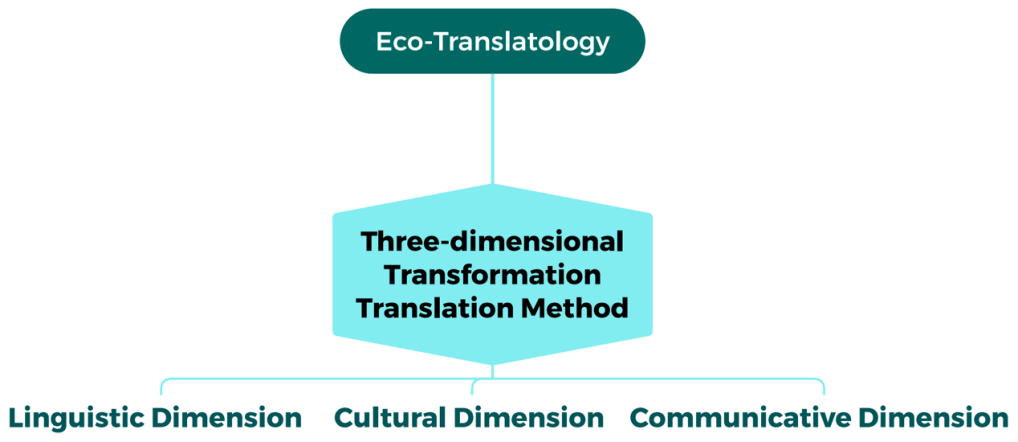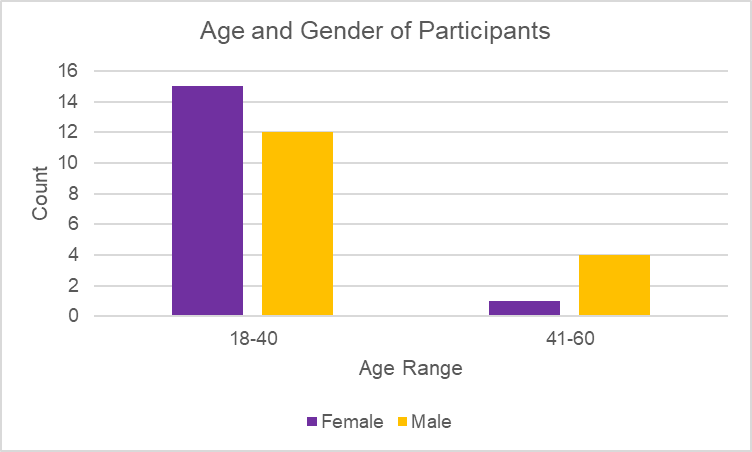

Volume 75
Published on October 2025Volume title: Proceedings of ICADSS 2025 Symposium: Consciousness and Cognition in Language Acquisition and Literary Interpretation
Li He, known as the “Poetic Ghost,” possesses a highly distinctive personality, and his poetry is renowned for its peculiar, grotesque, and fantastical style. This paper frames the discussion of Li He’s unique sublime beauty within Western theories of the sublime, drawing on the aesthetics of Longinus, Edmund Burke, and Immanuel Kant. Specifically, Longinus’s theory of rhetorical transcendence highlights the grandeur of language and imagery in Li He’s poetry; Burke’s concept of the sublime rooted in terror elucidates the aesthetic experience derived from death imagery and the transformation of pain; Kant’s idea of rational transcendence reveals Li He’s spiritual resistance under the oppression of fate. Li He’s poetry not only portrays the individual’s insignificance and powerlessness before history and time but also achieves a poetic transcendence of harsh realities through artistic expression. This form of sublime beauty establishes a cross-temporal dialogue with Western theories while retaining the Chinese poetic characteristic of being “mysterious yet grounded in the human world,” thereby offering new aesthetic perspectives for the study of classical poetry.

 View pdf
View pdf


Domestication strategy is an imperative component of translation practice. Along with people's demand for high-quality translation, this theory has also been constantly evolving with translation practice. Taking the English-Chinese translation ofHarry Potteras an example, systematically summarize and introduce relevant translation strategies of domestication, and evaluate the merits and demerits, and look forward to future application and research prospects. The mastery of domestication strategy is essential in translation studies, as it prioritizes target-culture norms and reader expectations, enhancing the textual fluency and cultural accessibility. This approach facilitates effective cross-cultural communication by minimizing foreignness as well as preserving core meaning, underscoring its significance in both theoretical and practical translation research. This essay first introduces the definition of domestication translation strategy, and then elaborates on it in detail from three aspects: liberal translation, imitation and variation translation. Meanwhile, by citing specific examples from the English-Chinese translations ofHarry Potter,readers can further deepen their understandings.

 View pdf
View pdf


In the contemporary era characterized by the pervasive integration of digital media into young people's lives, sports short videos, leveraging their visual storytelling capabilities and inherent social attributes, have emerged as a critical touchpoint influencing youth consumption decisions. Grounded in the Theory of Planned Behavior (TPB), a theoretical model constructs in this research, encompassing "Attentional Engagement - Influencing Factors - Purchase Intention" to investigate the mechanism through which content interaction behaviors on sports short video platforms affect the consumption intentions of the youth demographic. Utilizing valid questionnaire responses as the sample dataset and employing analytical methods including descriptive statistics and correlation analysis, this study explores the relationship between young users' attentional engagement with sports short videos and their subsequent purchase intentions. The consequence demonstrates a statistically significant positive correlation between the frequency of viewing sports short videos, proactive search behavior, and account-following actions on the part of young consumers and their purchase intentions. Key influencing factors identified include content appeal, Key Opinion Leader (KOL) recommendations, and the accessibility of purchase channels. This research provides actionable insights for content creators and brand marketers operating within the sports short video ecosystem.

 View pdf
View pdf



Movies play a crucial role in cultural dissemination. On today’s world cultural stage, the translation of movie subtitles is of great significance for a movie to break into the international market. In the process of creating an ecological balance for film subtitle translation, the theory of Eco-Translatology exerts a constructive effect. This paper, from the perspective of Eco-Translatology and in combination with the example of movie subtitles, elaborately introduces the three-dimensional transformation translation method therein. This paper aims to analyze the three-dimensional transformation theory applied in movie subtitle translation by means of literature review and based on the summary of previous studies. This paper finds that, based on the theory of Eco-Translatology, only by rationally applying the three-dimensional transformation translation method can an ecological balance in translation be achieved. Moreover, the use of three-dimensional transformation translation method provides new action guidelines and theoretical support for the translation of film subtitles and other literary works.

 View pdf
View pdf


In recent years, the psychological analysis of film protagonists has attracted growing academic attention, yet few studies focus on how narrative violence and social context shape a character’s self-destruction. This research aims to analyze the protagonist Daniel Plainview in the movie There Will Be Blood from a psychological perspective, in order to explore why the protagonist in the film eventually became alienated from his family and his self-subject collapsed. In terms of theoretical framework, this paper mainly uses Adler's individual psychology, supplemented by social and cultural psychology, to analyze the protagonist's irreversible tragedy under the internal emotional barriers and external environmental blows. And focuses on the film's text narrative and character creation, the contradictions in Daniel Plainview's personality, and the reasons why the contradictions cannot be resolved, revealing that his unfortunate and terrifying ending is caused by multiple factors. Therefore this study provides a fresh interdisciplinary approach that bridges psychoanalytic theory and film literary criticism. The study finally presents a reflection on this modern tragedy, and also provides a useful discussion for the combination of film literary criticism and psychological theory.

 View pdf
View pdf


Language serves as a basic tool for human cognition, and its impact on sensory perception has been a topic of interest in psychological research for a long time. So this paper explores the complex relationship between language and color perception from the perspective of psycholinguistics. This study aims to explore the influence of language on color perception, including verifying the neural mechanism of language shaping color cognition, analyzing the perceptual differences between cross-cultural and bilingual groups, so as to provide a basis for education, design and other fields, and finally reveal the active role of language in color perception. Through the classic theories (such as the Sapir-Whorf hypothesis) and literature analysis(including cross-linguistic color naming, color discrimination experiments, and neuroimaging research), this paper finds that it not only affects human color classification and memory, but it also interacts with cultural and individual factors to shape color perception.

 View pdf
View pdf


In the era of social media and consumer culture, the concept of "independent women" has undergone a significant transformation - from a politically grounded and critical idea to a commodified and visually standardized ideal image. This article explores how brands and social platforms utilize the narrative of women's independence strategically to serve commercial interests. Drawing on gender studies, media theory, and consumer culture, this article employs text analysis, case studies (such as Tmall's "Queen's Day" and SK-II's advertisements), and public sentiment observations obtained from platforms like TikTok, Xiaohongshu, and Weibo. The article finds that algorithm-driven recommendation systems and culture prioritizing labels favor aesthetic and consumable female images, while influencers actively replicate these images to conform to the logic of traffic flow and brand sponsorship. Although such depictions resonate with some members of the public, they also trigger "independence anxiety" and criticism of "false autonomy", especially when women strive to meet narrow idealized standards. Ultimately, this article argues that discussions on gender issues in the digital age should adopt a more inclusive and morally conscious approach.

 View pdf
View pdf


This study takes the South Korean girl group aespa as a case study to examine the cross-sectoral influence of K-pop in China, encompassing the entertainment industry, digital economy, cultural consumption, brand marketing, and technological development. By comparing the industrialized star-making system of South Korea with the localized practices of Chinese talent shows, the paper identifies key challenges and strategies in balancing efficiency with cultural relevance. Empirical analysis of aespa’s digital album sales on Tencent Music reveals the evolving dynamics of digital music monetization and fan economy models. Further, case studies on co-branding with Chinese companies demonstrate how K-pop facilitates cross-border marketing and brand globalization. Additionally, the group’s integration of virtual avatars and metaverse concepts offers insight into the application of virtual technology in interactive entertainment and digital content creation. The findings suggest that K-pop’s systemic and flexible model offers a valuable reference for Chinese industries seeking to coordinate standardized production with localized innovation, and to build internationally competitive digital ecosystems.

 View pdf
View pdf



Rapid globalization continues to endanger minority languages and cultures, which serve not only as tools for communication but also as vessels of cultural identity, oral history, and traditional wisdom. This study investigates the gendered dynamics of cultural and linguistic preservation within Hmong American communities. Drawing on 32 survey responses, it analyzes patterns of language use, cultural practice, and shifting gender expectations across generations. The findings reveal that while traditional roles persist, men in ritual leadership and women in domestic and caregiving roles, these boundaries are increasingly blurred. Women emerge as central figures in intergenerational transmission of language and culture, often engaging more actively in diverse contexts beyond the home. The study also identifies a growing sense of shared responsibility between genders, reflecting evolving norms within the diaspora. However, challenges remain, including a gender gap in fluency, limited initiative for active language use, and changing participation in cultural rituals. These findings suggest both tensions and opportunities in sustaining heritage across generations. This research contributes to broader conversations about adaptation, identity, and inclusion in diasporic communities, highlighting how gender functions not just as a social role, but as a key lens through which cultural continuity is shaped.

 View pdf
View pdf


In a highly diverse social and cultural context, based on the "breaking out of the circle effect", through the rapid dissemination of online marketing, niche cultures are increasingly transforming into mainstream trends. Among them, the phenomenon of blind box toys stands out particularly. This article explores the marketing strategies that support this cultural transformation, with a focus on the case of Pop Mart, a leading brand in the field of blind box toys. By using a comprehensive literature review and empirical analysis, this article studied the factors influencing Pop Mart's successful expansion of its consumer base and establishment of a strong market share, etc. From the perspective of consumers, determining the preferences of the target audience, predicting the upgraded behavior of consumers' emotional value experience, and driving more potential consumers are the magic weapons for the diffusion of trend culture. The study highlights the importance of leveraging the breakthrough effect, characterized by the rapid diffusion of information, the bandwagon effect, and the leverage of trend culture, to achieve market success.

 View pdf
View pdf




